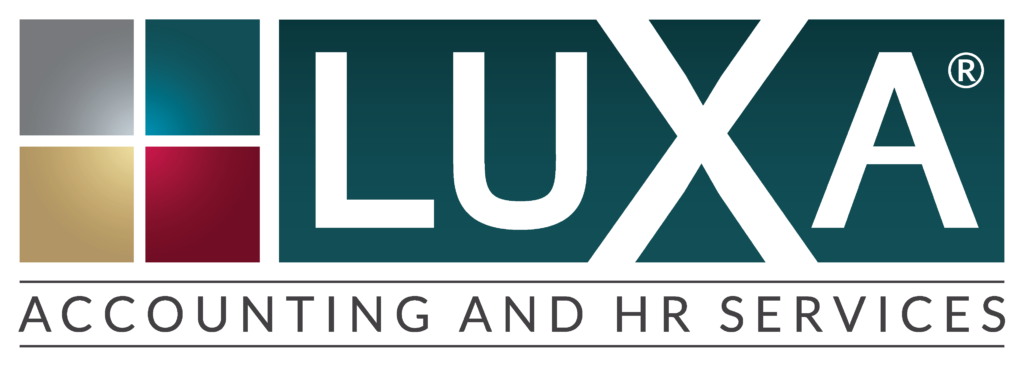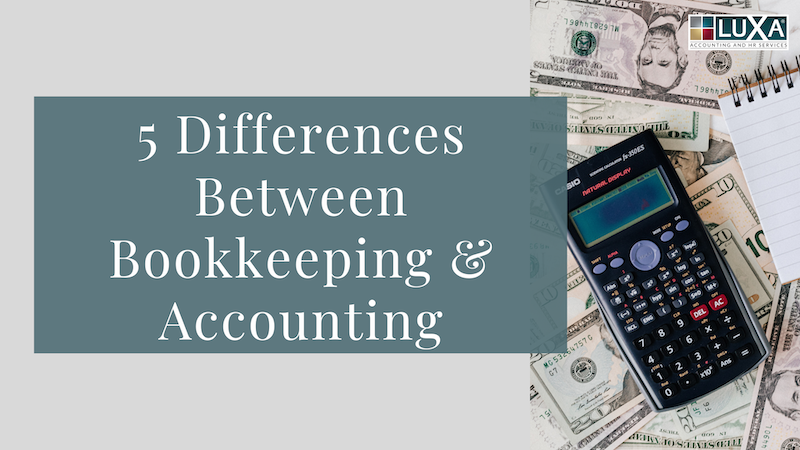Bookkeeping and accounting are two critical aspects of business operations in any industry. Both of these roles help business owners and CEOs keep track of expenses, make informed business decisions, and potentially avoid serious issues such as fraud and embezzlement.
While bookkeeping and accounting are very similar in their functions, there are significant differences between these two roles. In this article, we will discuss 5 major differences between bookkeeping and accounting, and how each position plays an important part in business growth and sustainability.
1. Definitions: Bookkeeping vs Accounting
The first major difference between bookkeeping and accounting lies in their respective definitions.
Bookkeeping is defined as “the process of accumulating, organizing, storing, and accessing the financial information base of an entity.” It is vital for day-to-day business operations and is the foundation for preparing financial statements, tax returns, and other important reports. In short, bookkeeping is the process of recording financial transactions.
Accounting, on the other hand, has a broader scope than bookkeeping. Accounting is defined as the “systematic process of identifying, recording, measuring, classifying, verifying, summarizing, interpreting and communicating financial information.”
In other words, accountants can do more than record transactions; they are also trained to explain what that financial data means to key stakeholders within the company.
For example, an accountant can generate reports on the company’s current financial condition, which in turn can guide the owner or executive to make informed business decisions going forward.
REQUEST ONLINE PRESENTATION
We’ll demonstrate how you can save money while improving your efficiency and accuracy when you outsource your back office services to TEAM LUXA.
Let Us Present A Plan →

2. Objectives
Since bookkeeping and accounting are categorized as two distinct processes, it only makes sense that they would differ in their ultimate objectives as well.
The primary objective of a bookkeeper is to accurately record all financial transactions logically and systematically. Generally speaking, bookkeepers record such financial activity chronologically. They use one of two major record-keeping systems, which we will discuss in further detail later on.
The main goal of an accountant is to determine the financial status or well-being of the company and pass this information on to the key stakeholders. Thus, accountants are not primarily concerned with the day-to-day tasks of bookkeeping (although these are essential) but are instead focused on the analysis and interpretation of all the financial data that has been compiled.
3. Scope of Work
The two occupations also differ in their scope.
Bookkeeper Duties
Bookkeeping duties could include the following tasks:
Pay debts as they come due
Issue customer invoices
Collect sales taxes and forward them on to the government
Record cash receipts
Make bank deposits
Perform monthly reconciliation of each bank account
Conduct periodic reconciliations of all accounts to ensure accuracy and completeness
Maintain the petty cash fund
Oversee an orderly accounting filing system
Maintain the annual budget
Regularly process payroll on time
Provide clerical and administrative support as needed
Accountant Duties
Accountant duties encompass a wider variety of necessary tasks. These could include the following actions:
Correctly reading and interpreting financial records
Ensuring that the company is in total compliance with all state and federal regulations
Providing professional financial advice to company leaders
Preparing tax returns, and analyzing ways to minimize the tax burden
Preparing financial statements
Presenting reports to key stakeholders
Setting up a comprehensive accounting framework to guard against fraud or embezzlement
Overseeing the work of bookkeepers
While there often is considerable overlap between bookkeeping and accounting duties, for the most part, bookkeepers are concerned with the day-to-day maintenance of financial data, while accountants are focused on leveraging the company’s financial data to make wise business decisions.
4. Skills Required for Bookkeepers vs. Accountants
Bookkeeping jobs generally do not require a special skill set or an advanced degree. However, bookkeepers should excel at basic math and arithmetic, be highly organized and detail-oriented, and work carefully to avoid mistakes.
Bookkeepers can be certified through the National Bookkeepers Association (NBA). They can also obtain a license as a Certified Public Bookkeeper through the National Association of Certified Public Bookkeepers (NACPB).
Accounting positions generally require a bachelor’s degree in accounting or a related field, like internal auditing. Some accounting positions require a master’s degree.
Accountants will often elect to take the Uniform CPA Examination to receive their credentials as a Certified Public Accountant (CPA). Most state boards require accountants to acquire 2 years’ worth of work experience before they are eligible to sit for the exam. After obtaining their certification, CPAs will need to stay up to date with current laws and practices by periodically participating in continuing education courses, and renewing their license.
5. Types of Bookkeeping & Accounting
There are two basic types of bookkeeping processes: single entry and double entry.
Single-entry systems involve only one record for each transaction. They are mainly focused on transactions related to cash receipts and disbursements. This is a simple record-keeping system; however, since accounts cannot be reconciled, the potential for fraud is high.
Double-entry systems involve two records for each transaction: a record of one account being credited, and of one being debited. While much more complex than the single entry method, the double-entry process adheres to Generally Accepted Accounting Principles (GAAP) and is, therefore, more secure and comprehensive in its scope.
In contrast with the two main categories of bookkeeping mentioned above, accounting positions cover a wide range of important functions. These include the following types of accounting:
CPAs
Forensic accountants that are tasked with uncovering omissions, errors, or fraud from a thorough analysis of financial records
Auditors that act as a third party safeguard against fraud and embezzlement
Staff accountants, known as the generalists of the accounting world
In Conclusion
While there are major differences between bookkeeping and accounting, both of these roles are critical to sustainable business success. Of course, it is important to fill both positions with highly trained and experienced professionals to reap the full benefits that come from such services.
If you are a business owner in need of bookkeeping and/or accounting services, reach out to TEAM LUXA today for a free consultation. Once we understand your current circumstances, we can craft a unique solution that will allow you to focus on your core competencies while we handle all of your bookkeeping and accounting needs.
LUXA Enterprises specializes in HR services, outsource accounting, bookkeeping, and payroll services. We match up with ideal candidates for services by allowing small to midsize businesses to increase focus on their growth through outsourcing. If you want to know how we can help you, contact us today!
REQUEST ONLINE PRESENTATION
We’ll demonstrate how you can save money while improving your efficiency and accuracy when you outsource your back office services to TEAM LUXA.
Let Us Present A Plan →

Call TEAM LUXA today at (918) 928-7288 to learn more about why outsourcing is right for you!

